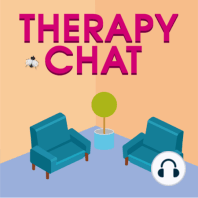28 min listen
22: Simple Self Care for Therapists
FromTherapy Chat
ratings:
Length:
46 minutes
Released:
Mar 4, 2016
Format:
Podcast episode
Description
elcome! My guest today is Ashley Davis Bush, LICSW. Ashley is a psychotherapist in private practice in southern New Hampshire with over 25 years’ experience. She has written six self-help books, including Transcending Loss and Simple Self-Care for Therapists. She is a regular contributor to the Huffington Post and has some great tips to share with us today about increasing our self-care. Join us! What you’ll hear in this episode: Ashley loves her work and counts it a privilege to be part of peoples’ lives. Her private practice is in her home, and it’s “a fun job, watching life unfold in front of you.” Even the simple choice of working from home can be a self-care choice. Ashley’s work focuses on grief, couples, and anxiety, but self-care is a common thread that is woven into her work with all clients. Ashley says that much of her practice patterns itself after her books. Her most recent book introduces the idea of “micro self-care.” “Macro self-care”practices are the big things that we normally think of regarding self-care, but micro practices are short, simple things that can be done in 1-2 minutes. Ashley focuses on self-care to avoid burnout, which she categorizes as “little b” and “BIG B” types of burnout. “little b” burnout is when you are exhausted at the end of the day or week. You may need a good night’s rest or a few days off to regenerate and recover. “BIG B” burnout is when you need to leave the field because you can’t take it anymore. Ashley addresses “vicarious trauma,” in that ALL therapists do some sort of trauma work. Personal and professional experience can cloud the lens with which we see the world, but life’s pains are a constant trauma. Ashley explains self-care vs. self-violence: when you don’t take care of yourself, then you’re doing harm (violence) to yourself. Mindfulness leads to grounding, bringing us into this moment right now. Ashley shares her Tibetan bell practice to help bring clients into mindfulness. She recommends using micro self-care practices at the beginning, middle, and end of your day. Ashley’s book lists 40-50 suggestions as to how to scale down macro self-care practices into small micro practices. Making the transformation from macro to micro self-care practices requires thinking creatively, but shouldn’t be overwhelming. Neuroplasticity is the science that show the brain can change in response to repetitive behaviors. You can rewire your brain to be more peaceful! When your brain is rewired, then your default setting comes to a place of gratitude and feeling good. Ashley’s three takeaways: Have a basic plan for 3 micro self-care practices each day. Sleep 8-9 hours each night so you aren’t tired during the day. Prioritize self-care, and you’ll soon realize that you can’t live without it! Be aware of the seasons of life, but regardless of the season, you can fit in micro self-care every day! Find Ashley at www.ashleydavisbush.com.
Released:
Mar 4, 2016
Format:
Podcast episode
Titles in the series (100)
2: Letting Go When Your Child Goes to College: Using Self Care to Cope With Loss by Therapy Chat
